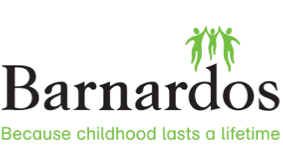Practice Development Training
Barnardos practice development training aims to support professionals working with children and families, by providing high quality training experiences which enhance participant’s knowledge, skills and expertise, promoting best practice and the highest standards in service delivery.
The below gives a brief overview of what to expect.
Understanding the Impact of Trauma on Child Development & Attachment
Overview
The aim of this training is to introduce participants to the concepts of Child Development and Childhood Trauma. Participants will explore how trauma impacts a child’s developing brain and their overall development. It will offer an introduction to how individuals respond to trauma.
This training will support participants to become trauma sensitive to the children and families they encounter in their work practices and explore simple strategies that can support children who experience different types of situational trauma.
Participants will be expected to complete a video assignment between day two and three of the training.
Method & Materials
Duration:
1 Full Day
Format:
Webinar or Workshop
Group size:
16 participants per training
The workshop will involve presentation,
videos and question & answers
Outcomes
Following the workshop participants will be able to:
- Identify how the dimensions and stages of child development, and the importance of attachment in a child’s early life, can affect their future outcomes.
- Explain how an individual’s biology and
environment can impact their development. - Explore why healthy child development and attachment matters
- Describe the different categories of Trauma.
- Reflect on the link between trauma and behaviour in children.
- List ways to support a trauma informed environment for children and families
Making the Most of Supervision Training for Supervisees
Overview
Good quality supervision helps staff to reflect on the quality of their practice and assists them to manage their workload. It offers staff support, whilst giving them a space to ask questions or raise concerns. It also provides opportunities for staff to address their ongoing professional development needs.
This training aims to support positive working relationships between the supervisee and supervisor.
Method & Materials
Duration:
1 Day
Format:
Webinar or Workshop
Group size:
16 participants per training
The workshop will involve presentation, small group work and question & answers.
The supervisee training is based on the Tony Morrison model of supervision in social care.
Outcomes
Following the workshop participants will be able to:
- Explore and develop their understanding and expectations of supervision
- Consider the purpose of supervision
Examine the impact of good and poor
supervision - Understand the roles, rights and responsibilities of supervisees and supervisors
- Consider adult learning styles and their
relevance to supervision - Explore how supervision can help the work progress when it feels stuck (using learning cycles and reflective practice)
Making the Most Of Supervision Training for Managers
Overview
Supervision supports the delivery of high-quality services to children and families.
Good quality supervision keeps organisations in touch with the work on the ground. It helps staff to focus on the quality of their practice, whilst offering them support and an arena to ask questions or raise concerns.
This training aims to generate positive relationships
between supervisor and supervisee and, through these, to inspire and motivate staff in their work.
Participants will be expected to complete a video assignment between day two and three of the training.
Method & Materials
Duration:
3 Days
Format:
Webinar or Workshop
Group size:
14 participants per training
Training will be delivered using a range of participative methods such as power point presentation, brainstorms, small group discussion and role play.
The supervision training for managers programme is based on the Tony Morrison model of supervision in social care.
Outcomes
Following the workshop participants will be able to:
- Identify key features, functions and benefits of supervision
- Use and review a supervision contract
- Apply the Kolb Cycle and feedback in supervision
- Identify the impact of power, authority and heightened emotions (anxiety) on the supervision process
- Identify the impact of organisational culture on supervision
- Apply skills to address issues of blocked performance
FAQs
Will I receive a certificate?
Participants will receive a certificate of attendance at all full day training events, which is based on 85% attendance and active participation.
Can my organisation be invoiced for training fees?
Barnardos will invoice for training when the fee is above €400 e.g. for one supervision training place or multiple training event places at Children First, Child Protection Training or Designated Liaison Person Training.
What if I can’t attend training I have booked?
Cancellations within 72 working hours will receive a refund.
Please call Barnardos Training on 01-4530355 or email [email protected] if you wish to cancel a booking.
What if I have to cancel Tailored Training?
In order to cancel or postpone a training event, please contact Barnardos Training Coordinator with as much notice as possible so that the trainer can be informed. If you cancel less than one week in advance of the event a charge of 50% will apply. If you need to cancel the event after working hours on the day before the event you should try to contact the trainer directly, either that evening before 8pm or first thing on the morning of the event e.g. anytime from 8am onwards. You should then inform Barnardos Training Coordinator who will follow up with the trainer. If the training event is scheduled for the weekend whoever makes the request should contact the trainer as above and then Barnardos Training Coordinator first thing the following Monday.
What if I attend only the first part of the training?
Participants have to complete both parts of training within 3 months to receive a certificate of attendance. If only one part is completed and the second part is not attended during the following 3 months, the training should be completed in full again.
Current Practice Development Courses


